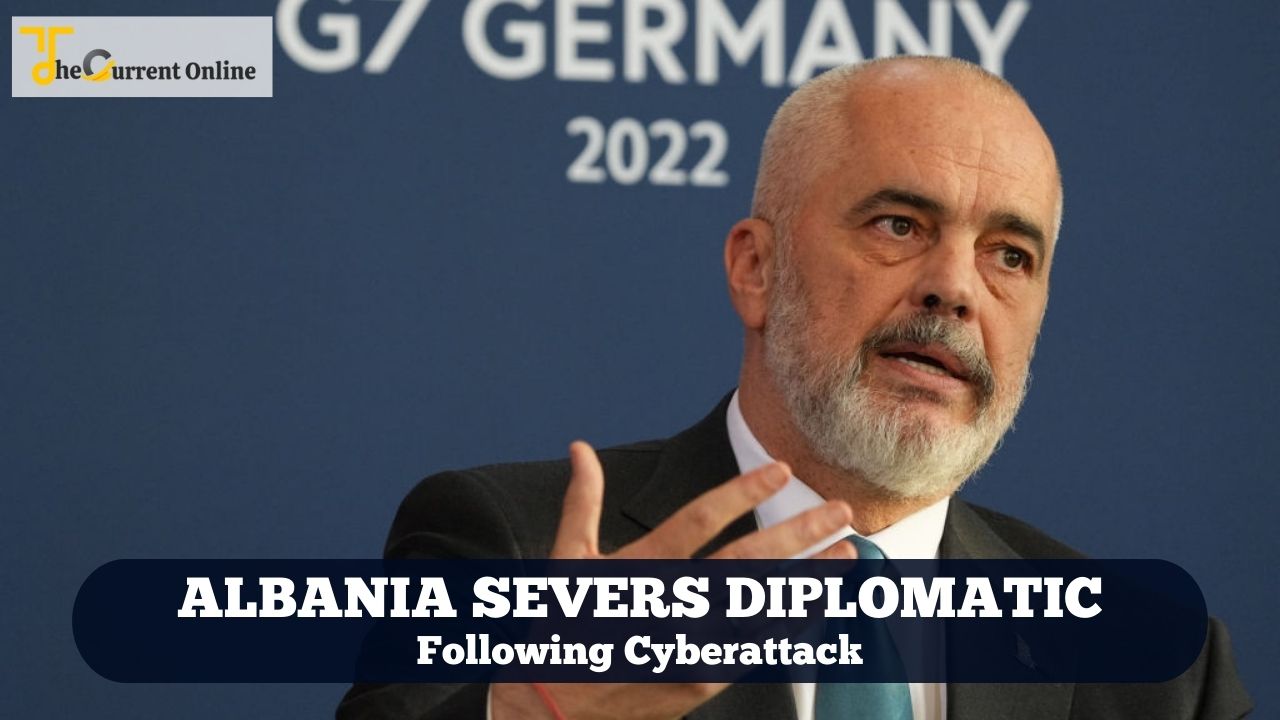Albania has severed diplomatic ties with Iran and ordered the departure of Iranian embassy personnel, accusing it of orchestrating a major cyber-attack.
Prime Minister Edi Rama said a review had discovered “incontrovertible evidence” that Iran “hired four organisations to mount the attack on Albania” on 15 July.
He stated that the hackers attempted to disrupt public services, erase and steal government data, and cause mayhem.
Iran responded by calling Mr. Rama’s assertions “baseless.”
Its foreign ministry called the move to expel its diplomats “anti-Iranian” and stated in a statement that “other parties” were involved in making the accusations, according to Iran’s national news agency.
Albania’s leader called the choice “radical,” but claimed it was “completely forced on us.”
The United States said it strongly opposed the cyber-attack on a Nato member and vowed to hold Iran accountable for activities that jeopardized Albania’s security.
Relations between Tirana and Tehran have been tight since Albania gave shelter to thousands of Iranian dissidents.
In a televised statement, Mr. Rama stated that the hacking group’s goal was “the destruction of the digital infrastructure of the government of the Republic of Albania, as well as the theft of data and electronic communications from government systems.”
“The claimed attack missed its purpose,” he continued, “all systems returned fully operational and there was no irreversible wiping of data.”
Our VP, Threat Intel @JohnHultquist in a statement to @Reuters on news of Albania cutting diplomatic ties to Iran over a cyber attack says, "This is possibly the strongest public response to a cyber attack we have ever seen." Full story here ⬇️ https://t.co/x7Rw3QiVUj
— Mandiant (@Mandiant) September 7, 2022
The prime minister stated that the decision to cut diplomatic ties with Iran was “proportionate to the magnitude and threat posed by the cyber-attack.”
According to Adrienne Watson, a spokesperson for the US National Security Council, American specialists similarly concluded that Iran “conducted this reckless and irresponsible cyber-attack” and was “responsible for following hack and leak activities.”
She warned that Iran’s behavior “disregards norms of responsible peacetime state behavior in cyberspace.”
Mandiant, a US cyber-security firm, claimed earlier this month that it had decided “with reasonable confidence” that the attack was carried out by “one or several threat actors that have operated in support of Iranian aims.”
Mandiant stated that the disturbance occurred just days before the opening of a meeting organized by the exiled Iranian opposition group Mujahideen-e-Khalq in the Albanian town of Manez (MEK).
Following warnings of “terrorist” threats, the event was postponed.
The firm also highlighted a video of supposed MEK members’ Albanian residence permits that was shared on the Telegram channel used by a group called “HomeLand Justice” to claim credit for the cyber-attack.
According to the report, a ransomware sample featured the following text: “Why should our taxes be spent on the benefit of DURRES terrorists?”
Manez is a town in Durres County that is home to a camp where approximately 3,000 MEK members have been allowed to dwell since 2013 at the request of the US and the UN.
Following Albania’s revelation, John Hultquist, Mandiant’s vice-president of intelligence, commented, “This is possibly the strongest public response to a cyber-attack we have ever seen.”
He went on to say that the attack “reminds us that, while the most aggressive Iranian cyber-activity is normally centred on the Middle East region, it is by no means limited to it.”
Mr. Hultquist further stated that it demonstrated that significant critical government systems in Nato countries were “susceptible and under attack.”
https://www.youtube.com/watch?v=6ZbyMYCvzro
FAQs
What is Albania famous for?
Albania is well-known for its religious tolerance. Albania’s two major religions are Islam and Christianity. Despite this, Muslims constitute more than half of the population. Albania is a country that values all religions.
Is Albania located in Europe or Asia?
Albania, a country in southern Europe, is located in the western section of the Balkan Peninsula on the Strait of Otranto, the southern entrance to the Adriatic Sea. Tirana (Tiran) is the capital city.
Is Albania safe to visit?
Public security is generally good, particularly in Tirana, and Albanians are very hospitable to visitors. Crime and violence do occur in some regions, although instances of crime targeting foreigners are uncommon.
What is the official language of Albania?
Albanian is the official language of Albania.
More than 8 million Albanians speak the language. It is the official language of Albania and the primary language of the self-proclaimed Republic of Kosovo (92% of its population is Albanian).
What foods do Albanians consume?
Albanian cuisine comes within the category of the “Mediterranean diet,” which includes high consumption of fish, vegetables, fruit, almonds, and olive oil, however, beef, veal, lamb, and pork are regularly consumed as well.




